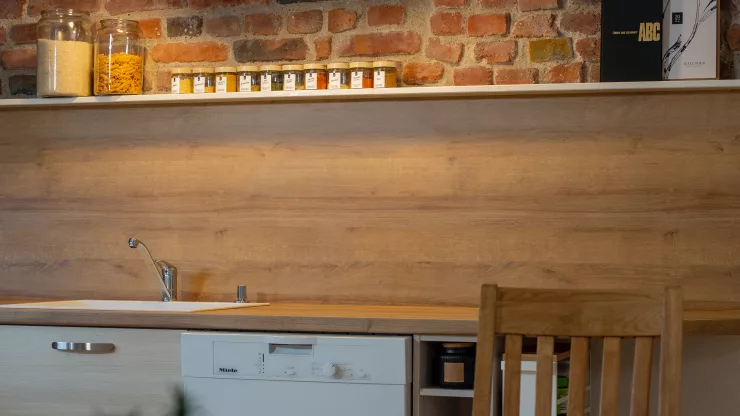Home renovation projects can be a great way to transform your living space into the home of your dreams. However, the costs of such projects can quickly add up, leaving many homeowners feeling overwhelmed and discouraged.
The good news is that renovating your home on a budget is possible! With a bit of planning and creativity, you can achieve the home renovation you’ve been dreaming of without breaking the bank.
In this article, we’ll share some tips and tricks for how to budget for a home renovation.
Jump to Section
Importance of Home Renovation
Renovating your home has many benefits beyond simply improving its aesthetics. It can also increase its value, improve energy efficiency, and enhance functionality.
Whether you’re looking to sell your home or simply want to make it more comfortable for your family, a home renovation project can be a smart investment.
Planning Your Renovation Project
Before you start tearing down walls and ripping up floors, it’s important to have a clear plan in place. This will help you stay organized and on budget throughout the renovation process.
Determine Your Budget
The first step in planning any renovation project is to determine your budget. Consider how much money you have available to spend, and be realistic about what you can afford.
Don’t forget to factor in unexpected expenses and contingencies.
To help you stay on track, create a budget spreadsheet that outlines all of your anticipated costs. This can include everything from labor and materials to permit fees and taxes.
Use this spreadsheet to track your expenses and make adjustments as needed.
| Expense | Estimated Cost | Actual Cost |
|---|---|---|
| Labor | $5,000 | $5,500 |
| Materials | $10,000 | $12,000 |
| Permit Fees | $1,000 | $1,000 |
| Contingencies | $2,000 | $2,500 |
| Total | $18,000 | $21,000 |
Prioritize Your Renovation Needs
Once you have a budget in place, it’s important to prioritize your renovation needs. This will help you focus your resources on the most important projects first.
Make a list of all the renovations you want to do and rank them in order of importance.
Some projects may be more urgent than others. For example, if your roof is leaking, you’ll want to address that before installing new countertops.
Other projects may be more cosmetic in nature and can be postponed until you have more money available.
Research and Compare Prices
Before you start any renovation project, it’s important to do your research. This includes researching contractors, materials, and prices.
Get multiple quotes from different contractors and compare them carefully. Don’t be afraid to negotiate prices or ask for discounts.
When it comes to materials, don’t assume that the most expensive option is always the best. Consider alternative materials that may be more affordable but still high quality.
Look for deals and discounts on materials and supplies, and consider upcycling or repurposing items to save money.
DIY vs Hiring Professionals
One of the biggest decisions you’ll need to make when planning a home renovation project is whether to tackle it yourself or hire professionals. Each approach has its pros and cons, so it’s important to carefully consider your options.
Pros and Cons of DIY Renovations
DIY renovations can be a great way to save money and take control of your renovation project. However, they also come with their own set of challenges.
Here are some pros and cons to consider:
Pros
- Save money on labor costs
- Control over the renovation process
- Sense of accomplishment
Cons
- Limited expertise and experience
- Increased risk of mistakes and accidents
- May take longer to complete
Benefits of Hiring Professionals
Hiring professionals can help ensure that your renovation project is completed safely, efficiently, and to a high standard. Here are some benefits to consider:
- Expertise and experience
- Access to specialized tools and equipment
- Faster completion time
Finding the Right Contractor
If you do decide to hire professionals, it’s important to find the right contractor for the job. Look for contractors who are licensed and insured, and check their references carefully.
Get multiple quotes and compare them carefully. Choose a contractor who communicates well, is transparent about pricing, and has a track record of delivering high-quality work.
Saving Money on Materials and Supplies
Materials and supplies can be a major cost in any renovation project. Here are some tips for saving money on these items:
Upcycling and Repurposing
Upcycling and repurposing items can be a great way to save money on materials. Consider using reclaimed wood for your flooring or repurposing old furniture for a new purpose.
- Use old doors or shutters as a headboard
- Turn old windows into a coffee table
- Use reclaimed wood for flooring or wall paneling
Finding Discounts and Deals
Look for deals and discounts on materials and supplies. This can include visiting clearance sections at home improvement stores, using coupons or promo codes, or buying in bulk.
- Sign up for the store’s mailing list to receive coupons and discounts
- Check online marketplaces for deals on used or overstocked items
- Buy in bulk to save money on materials like paint or flooring
Considering Alternative Materials
Alternative materials can be a great way to save money without sacrificing quality. For example, consider using laminate flooring instead of hardwood, or engineered stone countertops instead of natural stone.
| Material | Cost per Sq. Ft. |
|---|---|
| Hardwood Flooring | $8-12 |
| Laminate Flooring | $3-6 |
| Natural Stone Countertops | $50-100 |
| Engineered Stone Countertops | $35-75 |
Maximizing Your Renovation Budget
Here are some additional tips for maximizing your renovation budget:
Choosing the Right Projects
Choose projects that will have the biggest impact on your home’s value or functionality. For example, updating your kitchen or adding a bathroom can significantly increase your home’s value.
Renovating in Phases
If you can’t afford to do everything at once, consider renovating in phases. This will allow you to spread out costs over time and prioritize the most important projects first.
Negotiating Prices and Payment Plans
Don’t be afraid to negotiate prices or payment plans with contractors or suppliers. Many will be willing to work with you to find a solution that fits your budget.
Final Thoughts
Renovating your home on a budget can be a challenging but rewarding process. By planning carefully, researching your options, and being creative, you can achieve the home renovation you’ve been dreaming of without breaking the bank.
Frequently Asked Questions
How do I create a renovation budget?
To create a renovation budget, start by determining how much money you have available to spend. Create a spreadsheet that outlines all of your anticipated costs, including labor and materials.
Factor in unexpected expenses and contingencies, and track your expenses carefully throughout the renovation process.
Can I save money by doing my own renovations?
DIY renovations can be a great way to save money, but they also come with their own set of challenges. Consider your expertise and experience before tackling a project on your own, and be prepared for the possibility of mistakes or accidents.
How can I find deals and discounts on materials and supplies?
Look for deals and discounts on materials and supplies by visiting clearance sections at home improvement stores, using coupons or promo codes, or buying in bulk. Check online marketplaces for deals on used or overstocked items.
Is it better to hire professionals or do my own renovations?
The decision to hire professionals or do your own renovations depends on your expertise and experience, as well as the complexity of the project. Consider hiring professionals for projects that require specialized tools or expertise, or that pose a safety risk.

With a deep passion for personal development, Ben has dedicated his career to inspiring and guiding others on their journey towards self-improvement.
His love for learning and sharing knowledge about personal growth strategies, mindfulness, and goal-setting principles has led him to create My Virtual Life Coach.
Contact Ben at [email protected] for assistance.




